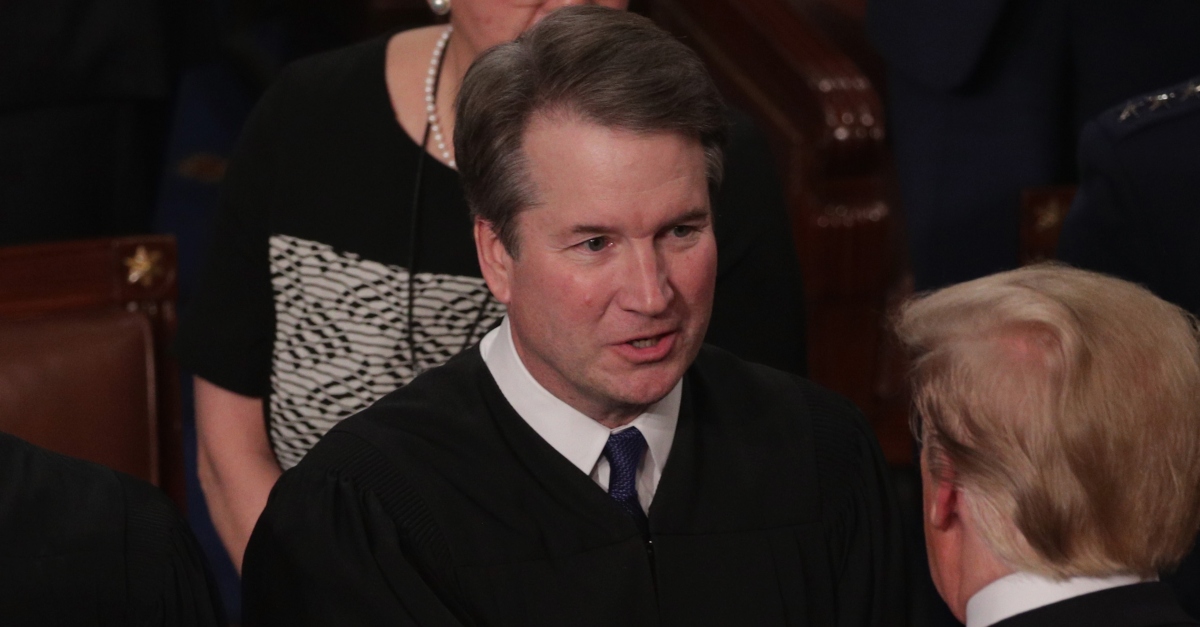
With everything that’s happened since then, 2018 feels like a long time ago, but it’s hard to forget the contentiousness of Brett Kavanaugh‘s Supreme Court nomination. Turns out, he reportedly could’ve dealt with even more controversy. Kavanaugh served as a source for a 1999 book by Washington Post reporter Bob Woodward, but turned around to publicly deny the same story he supplied, according to the 2018 article by Woodward. This account doesn’t come from WaPo, however. It came from a New York Times report that examined the authority of Post executive editor Marty Baron. In this new story, Baron was the one who quashed the Woodward’s 2018 unmasking of Kavanaugh.
Bob Woodward wanted to publish a story saying Brett Kavanaugh had denied an account of the Starr investigation that Kavanaugh himself had provided to Woodward. Post killed it, per @benyt: https://t.co/nLdteqyvZH pic.twitter.com/ueQrY6lKqs
— Lawrence Hurley (@lawrencehurley) June 29, 2020
The Times cites three Post employees who “insisted on anonymity because The Post prefers that its employees not talk to the media.”
According to this new article published Sunday, Woodward was going to expose Kavanaugh as one of his sources for the 1999 book Shadow: Five Presidents and the Legacy of Watergate. The thing is, Kavanaugh wrote the Post in 1999 denying his own story regarding Kenneth Starr investigating President Bill Clinton.
From the Times:
The article was nearly ready when the executive editor, Martin Baron, stepped in. Mr. Baron urged Mr. Woodward not to breach his arrangement with Mr. Kavanaugh and to protect his old source’s anonymity, three Post employees said.
…
Mr. Baron and other editors persuaded Mr. Woodward that it would be bad for The Post and “bad for Bob” to disclose a source, one of the journalists told me. The piece never ran.
According to sources, Baron opposed the story not because of timidness or to protect Kavanaugh, but because he believed it would violate the principal that sources should be shielded.
As of Kavanaugh, the article would’ve arrived right as his credibility was at stake, and he faced multiple on the record sexual assault allegations. He denied allegations. In the end, the U.S. Senate confirmed him 50-48, almost completely along party lines.
The U.S. Supreme Court’s press office did not immediately respond to a Law&Crime request for comment.
[Image via Alex Wong/Getty Images]